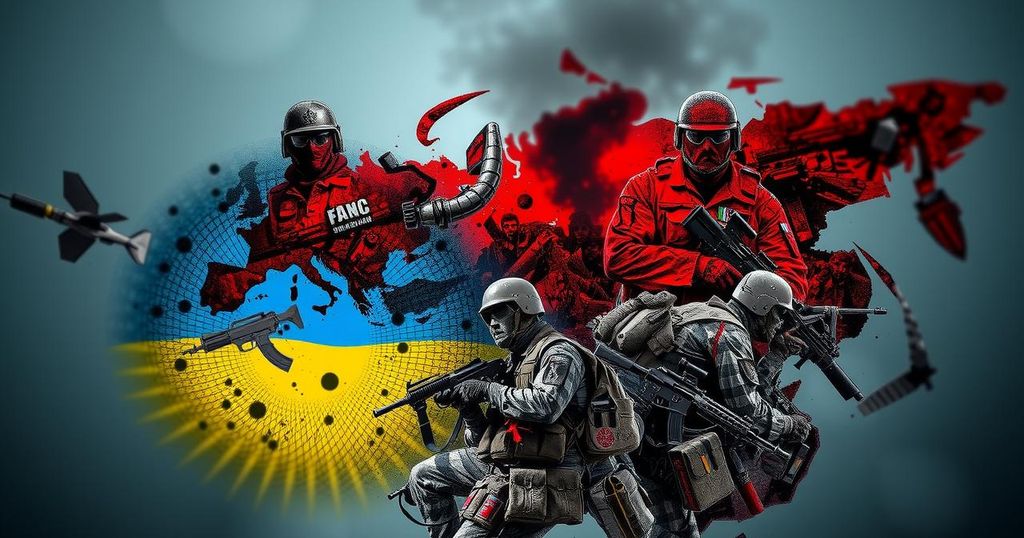Media Silence in Central Asia on the Ukraine War
Central Asian state media, especially in Turkmenistan, remain largely silent about Russia’s war in Ukraine, skipping relevant coverage despite the war’s significant local impact. In contrast, independent outlets have reported extensively, facing repercussions from Russian authorities. Kazakhstan navigates a careful path, occasionally acknowledging the conflict but primarily diverting attention to unrelated global issues. Overall, censorship and authoritarian control dampen media freedom across the region.
In Central Asia, state-controlled media have largely avoided discussing Russia’s invasion of Ukraine since the conflict escalated. Turkmenistan, with its highly censored state media, offers the most complete silence on the matter, reflecting a broader trend across the region. Other government-affiliated news outlets have similarly minimized coverage, despite the visible effects of the war on their populations, including the repatriation of deceased soldiers. Independent media, however, have actively reported on the ongoing war, in some instances facing backlash from Russian authorities. Kazakhstan, the region’s largest state, has taken a somewhat bolder stance, yet its state media still downplays the war’s significance. For example, Kazakh state television has chosen to feature unrelated global issues while neglecting significant events in Ukraine. This occurred even after reports of local humanitarian efforts in Ukraine were met with criticism from Moscow. While confirming the lack of coverage, a representative from Kazakh media suggested that validating reports from the conflict zone was challenging. Uzbekistan and Tajikistan’s state media have also ignored the war, whereas Kyrgyz media covers the conflict with caution, primarily when unavoidable. In contrasting coverage, privately-owned media outlets in Kyrgyzstan have adopted varying degrees of reporting, only to face censure from both local and Russian authorities. Following an interview with a commander in the Ukrainian Army, one notable Kyrgyz outlet faced investigations over alleged “war propaganda.” Turkmenistan’s media remains entirely compliant with state directives, reflecting an extremely authoritarian control of information. The titular neutrality of Turkmenistan serves to inhibit any reporting on international conflicts. Consequently, the only available information regarding the war in Turkmenistan comes from external sources, echoing sentiments from the Soviet era concerning media dependency and censorship.
The article discusses the suppression of information concerning the war in Ukraine by Central Asian state-controlled media. It highlights the deliberate avoidance of the topic by countries like Turkmenistan, Kazakhstan, Uzbekistan, and Tajikistan, where official narratives align closely with Russian interests. Furthermore, it contrasts the situation with independent media that have bravely covered the conflict despite facing potential repercussions, particularly in Kyrgyzstan, where government scrutiny has both threatened and curtailed private news coverage. This situation reflects a deeply-rooted culture of censorship and the influence of authoritarian governance in the region.
In conclusion, the media landscape in Central Asia reveals a stark contrast between state-controlled outlets, which predominantly ignore the war in Ukraine, and independent news sources that strive to inform the public despite severe risks. While Kazakhstan has shown some candor, the overall trend indicates a regional inclination towards silence and suppression, reminiscent of Soviet-era censorship practices. The complex relationship with Russia further exacerbates the challenges faced by media entities, particularly as they navigate between official narratives and public interest.
Original Source: www.rferl.org




Post Comment